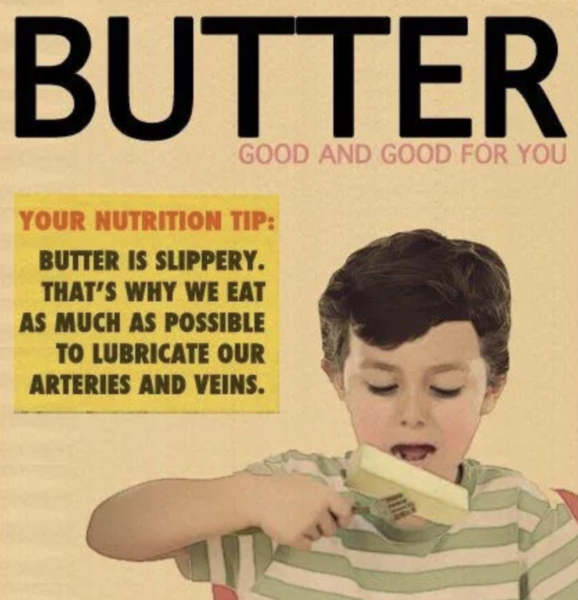
An unexplained interest in the categorory of functional foods having recently gripped me, I uncovered a couple of New York Times stories that proved helpful. One, Dessert, Laid-Back and Legal, from 2011 reported on processed snacks containing melatonin; another, Foods with Benefits, or So They Say, attempted to shed light on the murky world of health claims in food advertising. Does its oatmeal really help reduce cholesterol, as the Quaker Oats Company claims? Maybe – but apparently you’d have to endanger your health by eating staggering amounts of it before any of the claimed benefits kicked in.
In a 2018 article in The Atlantic, Superfoods are a Marketing Ploy, NYU Professor Marion Nestle is withering in her disdain of claims of this sort. “Foods are not drugs,” she fumes. “To ask whether one single food has special health benefits defies common sense.”
Why so aggravated? Maybe it’s something she ate.
My research into the subject wasn’t a total waste of time. The effort did yield something like results when I realized that none of what I read mentioned wine as a functional food. This seemed doubly odd when I reflected that, apropos article one, many people take wine with the aim (or at least in a context) of relaxation, and that, apropos article two, some significant number of others (including me) have been persuaded by real-deal research that wine consumption has some sort of prophylactic powers vis à vis coronary and vascular disease.
It seems to me that on these counts alone, wine deserves authenticated status as a functional food – and I hereby go on record as the first to claim it.
Well, not really. Since Hippocrates, medicos have touted the beneficial effects of moderate wine drinking and used it freely (if not always wisely) as a specific remedy against a variety of complaints. I was reminded of this while spending quality time with my other favorite functional food — coffee — this morning and thumbing through the 1920 wine lit classic Notes on a Cellar Book , in which British literary critic George Saintsbury recounts the following anecdote.
“One of my father’s sisters was a very old lady, who lived by herself in a remote part of the country on no very large income, and (as the phrase goes) in a very quiet way. Having some trouble with her eyes, she came up to town to consult an oculist, and naturally stayed with me. The oculist, finding nothing organically wrong, but only a certain weakness of age and constitution, recommended her to drink Burgundy. I gave her on successive days some of my [Grand Cru] Richebourg telling her frankly that it was a very expensive wine, and some of a sound Pommard which could be had for between a half and a third of the price, that she might choose and order some from the merchant who, as it happened, supplied both.
“I had imagined,” he continues, “the first figure would either frighten or shock her, but she said with perfect simplicity, ‘I think, my dear boy, the best always is the best,’ and ordered a small supply of the Richebourg forthwith.’
Conclusion? It’s not really likely that Burgundy of any stripe would do much for a senior’s faltering vision. But it well might make the twilight of one’s years marginally more agreeable.
Nurse, another glass of Richebourg for this patient, please.